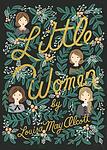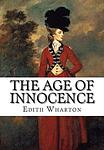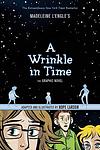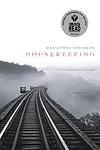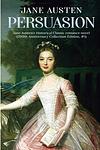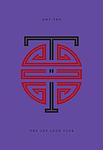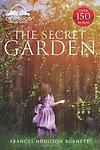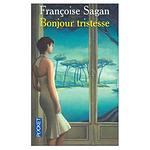The Greatest "Family" Books of All Time Written by Women
Click to learn how this list is calculated.
This collection epitomizes the pinnacle of literature authored by women, aggregating selections from 300 'best of' book lists into a definitive guide to the most acclaimed works by female writers. This aggregation reflects a comprehensive evaluation of literary achievements, offering a rich tapestry of perspectives and voices. For a deeper understanding of our selection methodology and the rigorous criteria behind these rankings, please visit our rankings page.
Genres
The "Family" category of books encompasses stories that revolve around the dynamics, relationships, and experiences of families. These books explore the complexities of familial bonds, including love, loyalty, conflict, and forgiveness. They may focus on different types of families, such as nuclear families, blended families, or extended families, and may cover a range of themes, from coming-of-age tales to domestic dramas. Overall, the "Family" category offers a rich and diverse collection of books that delve into the joys and challenges of family life.
Date Range
Reading Statistics
Click the button below to see how many of these books you've read!
Download
If you're interested in downloading this list as a CSV file for use in a spreadsheet application, you can easily do so by clicking the button below. Please note that to ensure a manageable file size and faster download, the CSV will include details for only the first 500 books.
Download-
1. To Kill a Mockingbird by Harper Lee
Set in the racially charged South during the Depression, the novel follows a young girl and her older brother as they navigate their small town's societal norms and prejudices. Their father, a lawyer, is appointed to defend a black man falsely accused of raping a white woman, forcing the children to confront the harsh realities of racism and injustice. The story explores themes of morality, innocence, and the loss of innocence through the eyes of the young protagonists.
-
2. Pride and Prejudice by Jane Austen
Set in early 19th-century England, this classic novel revolves around the lives of the Bennet family, particularly the five unmarried daughters. The narrative explores themes of manners, upbringing, morality, education, and marriage within the society of the landed gentry. It follows the romantic entanglements of Elizabeth Bennet, the second eldest daughter, who is intelligent, lively, and quick-witted, and her tumultuous relationship with the proud, wealthy, and seemingly aloof Mr. Darcy. Their story unfolds as they navigate societal expectations, personal misunderstandings, and their own pride and prejudice.
-
3. Middlemarch by George Eliot
Set in the fictitious English town of Middlemarch during the early 19th century, the novel explores the complex web of relationships in a close-knit society. It follows the lives of several characters, primarily Dorothea Brooke, a young woman of idealistic fervor, and Tertius Lydgate, an ambitious young doctor, who both grapple with societal expectations, personal desires, and moral dilemmas. Their stories intertwine with a rich tapestry of other townsfolk, reflecting themes of love, marriage, ambition, and reform, making a profound commentary on the human condition.
-
4. To the Lighthouse by Virginia Woolf
This novel is a pioneering work of modernist literature that explores the Ramsay family's experiences at their summer home on the Isle of Skye in Scotland. The narrative is divided into three sections, focusing on a day in the family's life, a description of the house during their absence, and their return after ten years. The book is known for its stream of consciousness narrative technique and its exploration of topics such as the passage of time, the nature of art, and the female experience.
-
5. The Color Purple by Alice Walker
Set in the early 20th century, the novel is an epistolary tale of a young African-American woman named Celie, living in the South. She faces constant abuse and hardship, first from her father and then from her husband. The story unfolds through her letters written to God and her sister Nettie, revealing her emotional journey from oppression to self-discovery and independence, aided by her relationships with strong women around her. The narrative explores themes of racism, sexism, domestic violence, and the power of sisterhood and love.
-
6. Little Women by Louisa May Alcott
This classic novel follows the lives of the four March sisters - Meg, Jo, Beth, and Amy - as they navigate the challenges and joys of adolescence and adulthood in 19th century New England. As they grow, they grapple with issues of poverty, gender roles, love, and personal identity, each in her own unique way. The story is a testament to the power of family, sisterhood, and female resilience in a time of societal constraints.
-
7. The Age of Innocence by Edith Wharton
Set in the 1870s, the novel revolves around Newland Archer, a young lawyer from New York's high society, who is engaged to the beautiful and conventional May Welland. His life takes a turn when he meets May's cousin, the Countess Ellen Olenska, who has returned from Europe after leaving her scandalous husband. Torn between his duty and passion, Archer struggles with the constraints of the society he is a part of. The book offers a vivid portrayal of the struggle between individual desires and societal expectations in the upper-class New York society of the late 19th century.
-
8. Emma by Jane Austen
The novel revolves around Emma, a well-meaning but disaster-prone matchmaker, who ignores her own romantic feelings while setting out to find a suitor for her friend Harriet. Her efforts cause more problems than solutions as she leaves a trail of mishaps behind her. As her plans go awry, Emma realizes that she herself may be the one in love. The book is a classic exploration of social manners, love, and marriage in 19th-century England.
-
9. Wide Sargasso Sea by Jean Rhys
This novel is a postcolonial prequel to "Jane Eyre," exploring the life of Mr. Rochester's mad wife, Bertha. Set in Jamaica during the 1830s, it follows the story of Antoinette Cosway, a white Creole heiress, from her youth in the Caribbean to her unhappy marriage and move to England. Caught in a society that both rejects and exoticizes her, Antoinette is ultimately driven into madness by her oppressive husband and the haunting legacy of colonialism.
-
10. Song of Solomon by Toni Morrison
The novel explores the life of an African-American man, Macon "Milkman" Dead III, from birth to adulthood. Set against the backdrop of racial tension in the mid-20th century United States, it delves into his journey of self-discovery and understanding his heritage. As Macon embarks on a literal and figurative journey south to reconnect with his roots, he encounters various characters that help him understand his family history and the power of community. The narrative is deeply rooted in African-American folklore and mythology, offering a profound commentary on identity, personal freedom, and the destructive power of racism.
-
11. A Wrinkle In Time by Madeleine L'Engle
The novel follows the story of a young girl named Meg Murry, her younger brother Charles Wallace, and their friend Calvin O'Keefe as they embark on a cosmic journey to rescue Meg and Charles Wallace's father. The father, a scientist, has been missing since he discovered a new planet using the concept of Tesseract, which is a wrinkle in time. Guided by three mysterious celestial beings, the children travel across different dimensions, face evil forces, and learn about the power of love and self-sacrifice.
-
12. Housekeeping by Marilynne Robinson
The novel explores the life of two sisters, Ruth and Lucille, who are raised by a series of relatives in a small, secluded town in Idaho after their mother's suicide. The girls' lives are profoundly affected by the eccentric and transient lifestyle of their aunt Sylvie, who becomes their guardian. The narrative delves deeply into themes of family, identity, womanhood, and the impermanence of life, ultimately leading to a divide between the sisters as they choose different paths in life.
-
13. The God of Small Things by Arundhati Roy
This novel is a poignant tale of fraternal twins, a boy and a girl, who navigate through their childhood in Kerala, India, amidst a backdrop of political unrest and societal norms. The story, set in 1969, explores the complexities of their family's history and the tragic events that shape their lives. Their mother's transgression of caste and societal norms by having an affair with an untouchable leads to disastrous consequences, revealing the oppressive nature of the caste system and the destructive power of forbidden love. The novel also delves into themes of postcolonial identity, gender roles, and the lingering effects of trauma.
-
14. White Teeth by Zadie Smith
This novel follows the lives of two friends, a working-class Englishman and a Bangladeshi Muslim, living in London. The story explores the complex relationships between people of different races, cultures, and generations in modern Britain, with themes of identity, immigration, and the cultural and social changes that have shaped the country. The narrative is enriched by the characters' personal histories and the historical events that have shaped their lives.
-
15. Cold Comfort Farm by Stella Gibbons
When a young, sophisticated woman is suddenly orphaned and left penniless, she decides to live with her eccentric relatives on their rundown farm. Using her urban sensibilities and wit, she sets about bringing order to the chaos and improving the lives of her relatives. Through her efforts, she manages to transform the gloomy, grim farm into a place of happiness and productivity. This novel is a hilarious parody of romantic, pastoral novels and is filled with eccentric characters and absurd situations.
-
16. Persuasion by Jane Austen
This classic novel revolves around the life of Anne Elliot, a woman of 27 who is unmarried and living with her vain, snobbish, and foolish family who are on the brink of financial ruin. Seven years prior, she had been persuaded to reject a marriage proposal from the man she loved, a poor but ambitious naval officer named Frederick Wentworth. When he returns from the war a wealthy and successful captain, old feelings are rekindled. The story follows Anne's journey towards self-realization and second chances at love amidst the complexities of her social class.
-
17. The Joy Luck Club by Amy Tan
This novel explores the complex relationships between four Chinese-American mothers and their American-born daughters. The narrative switches between the perspectives of the eight women, revealing their pasts, their struggles with cultural identity, and the misunderstandings that have grown between the generations. The mothers, who all experienced hardship in their native China, want their daughters to have better lives and thus push them to excel in America. The daughters, in turn, struggle to reconcile their American surroundings with their Chinese heritage.
-
18. The Good Earth by Pearl S. Buck
This novel tells the story of a poor farmer in rural China, who struggles to survive and prosper. Over time, he manages to build a life for himself and his family, eventually becoming a wealthy landowner. However, his newfound wealth and status lead to a moral decline, as he becomes disconnected from the land that gave him everything. The narrative explores themes of wealth, poverty, and the human connection to the earth.
-
19. The Mill on the Floss by George Eliot
"The Mill on the Floss" is a novel that explores the lives of siblings Tom and Maggie Tulliver, who grow up at Dorlcote Mill on the River Floss. The book delves into their experiences in the rural society of the time, their complex relationship, and the choices they make in adulthood. The story is marked by themes of love, betrayal, societal expectations, and the struggle between individual desires and family obligations. The tragic ending underscores the consequences of societal norms and the struggle against them.
-
20. The Secret Garden by Frances Hodgson Burnett
A young, spoiled and unloved girl is sent to live with her reclusive uncle in a large, lonely house after the death of her parents. Through the discovery and cultivation of a hidden, neglected garden, she befriends a local boy and her sickly cousin, and the three children find healing and transformation through their friendship and the magic of the garden.
-
21. The Shipping News by Annie Proulx
The novel follows the story of a depressed and overweight man who moves with his two daughters to his ancestral home in Newfoundland, Canada, after his unfaithful wife dies in a car accident. There, he begins to rebuild his life, working as a reporter for the local newspaper, The Shipping News, and learning about the harsh realities of the fishing industry. As he delves into his family's history, he begins to find a sense of belonging and a new love. The story explores themes of family, identity, and the power of place.
-
22. I Capture the Castle by Dodie Smith
"I Capture the Castle" is a coming-of-age novel that tells the story of 17-year-old Cassandra Mortmain and her eccentric family living in a dilapidated English castle during the 1930s. Cassandra's father is a reclusive writer suffering from writer's block and her stepmother is a bohemian artist. The family's life changes dramatically when two American brothers inherit the estate. The novel, written in diary format, explores themes of love, poverty, and the transition from adolescence to adulthood.
-
23. Kristin Lavransdatter by Sigrid Undset
Set in 14th century Norway, "Kristin Lavransdatter" follows the life of its titular character from her childhood, through her tumultuous and passionate marriage to Erlend Nikulausson, to her life as a mother and eventual widow. The narrative explores Kristin's struggles with faith, societal expectations, and personal desires, offering a vivid portrayal of medieval Scandinavian life along the way. Despite the many hardships she faces, Kristin remains a strong and resilient woman, embodying the spirit of her time.
-
24. Bonjour Tristesse by Francoise Sagan
This novel centers around a 17-year-old girl living with her playboy father in the French Riviera. The pair lead a carefree, hedonistic lifestyle until the father decides to remarry, causing the protagonist to hatch a plan to prevent the marriage and return to their old way of life. The story explores themes of youth, love, and the struggle between desire and morality.
-
25. Silas Marner by George Eliot
Silas Marner, a weaver, is wrongfully accused of theft and excommunicated from his community in Lantern Yard. He moves to the village of Raveloe, where he lives as a recluse, hoarding his money. After his money is stolen, he adopts a young girl named Eppie, who was abandoned near his home. Eppie's presence transforms Silas's life, and he becomes a cherished member of the community. The novel explores themes of betrayal, redemption, and the transformative power of love.
Reading Statistics
Click the button below to see how many of these books you've read!
Download
If you're interested in downloading this list as a CSV file for use in a spreadsheet application, you can easily do so by clicking the button below. Please note that to ensure a manageable file size and faster download, the CSV will include details for only the first 500 books.
Download




